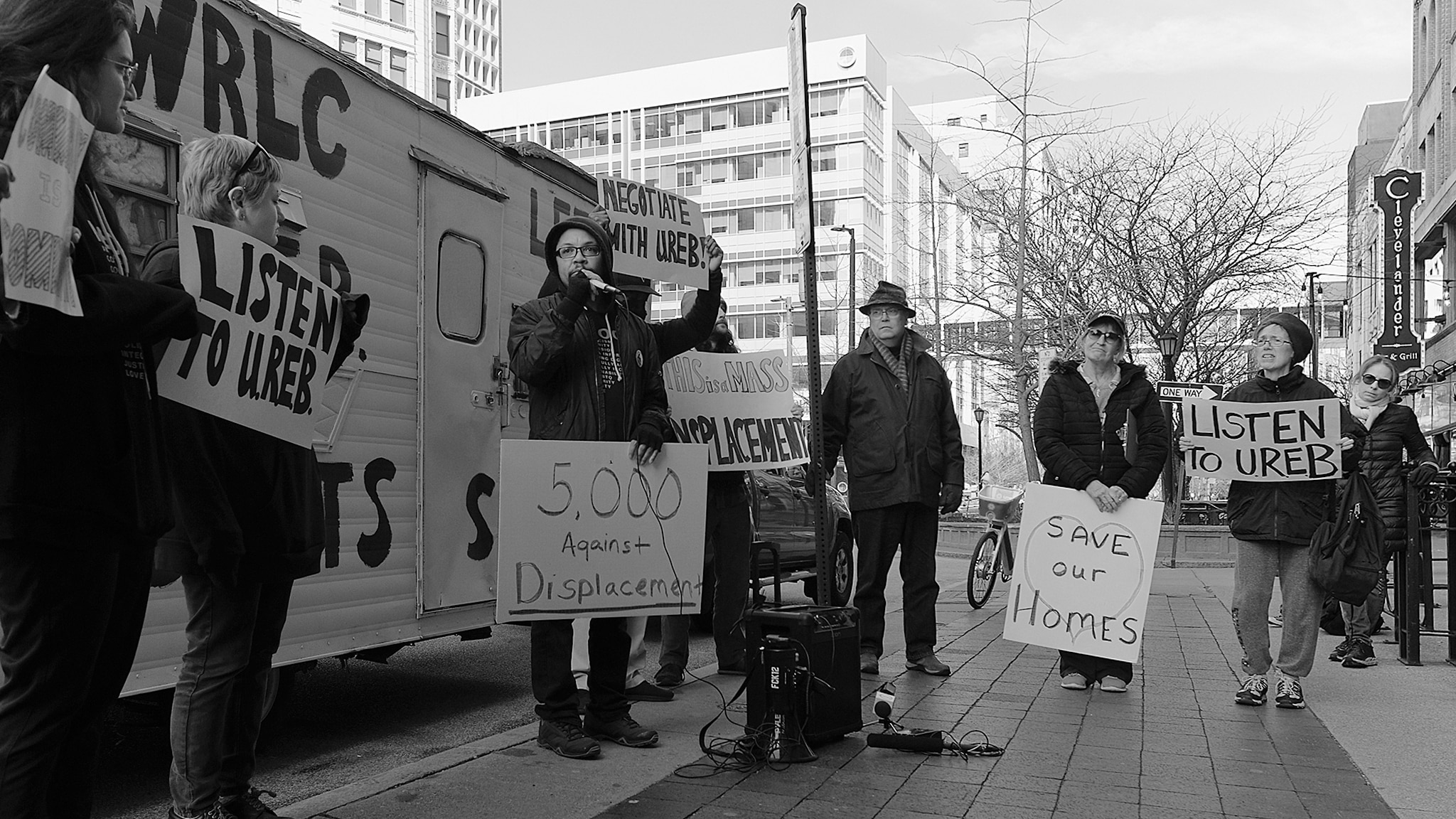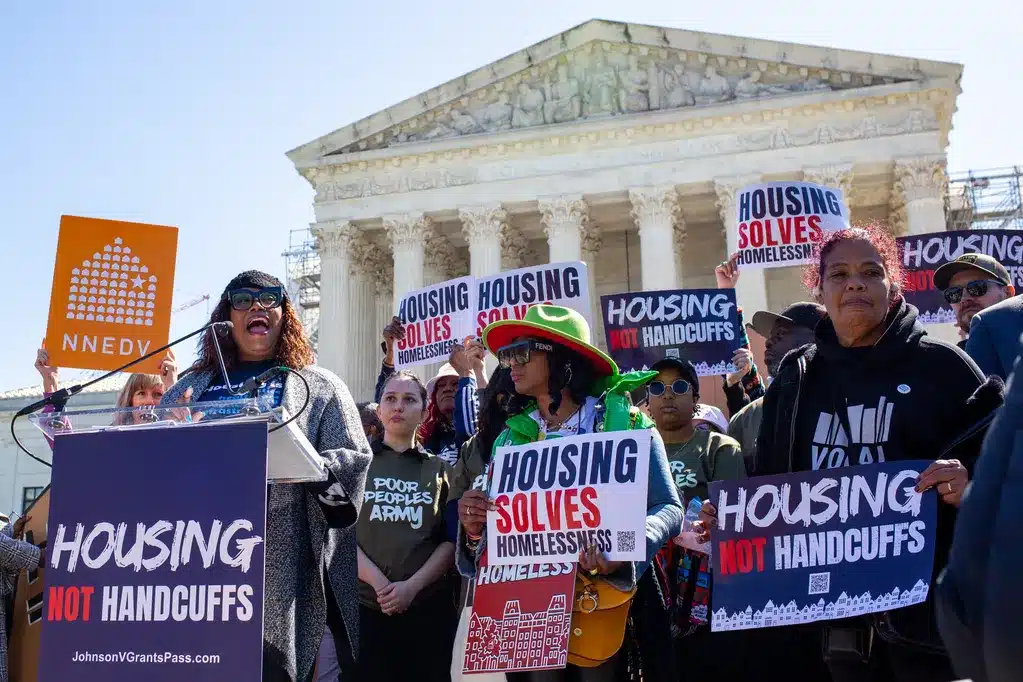Everybody likes to go all schadenfreude on California, jealous of the wonderful weather, fabled coastline, and our claim to Yorba Linda, birthplace of Richard Nixon, all things that make us The Envy of the World.
But please go easy on us this election season.
Because we are not well.
Like you, we’re feeling a little punch drunk having watched the agonizing smack-down that has been the Democratic primary season — which still feels a little bit too much not-over. But along with that national trauma, we’re also feeling a bit faint because our screwy initiative system has served up yet another dangerously dumb-ass initiative, this time on the June 3 ballot.
It would gut local rent-control ordinances. It could also scuttle clean water and other regulations. Yes, both. Conservatives over here on the West Coast tend toward scarce, but they seldom do things by halves.
Don’t yawn just yet, non-Californians — if this kind of measure wins in the Golden State, it spreads like poison oak in your direction. Remember, we sent you the Reagan Revolution — born in Fountain Valley, Calif., which lacks fountains and doesn’t seem much like a valley — along with the Howard Jarvis Tax Revolution.
This year’s California ballot initiative, called Prop 98 — or trippingly titled in ballot-ese the California Property Owners and Farmland Protection Act — is brought to us by the same forces that so long ago whelped Prop 13, aka the Howard Jarvis Tax initiative. Prop 13, in a victory propelled by a property-tax system that did tax many an elderly homeowner to ruin, also drained the state of billions in revenue since it passed in 1978.
That’s after it provided a windfall for commercial property owners, whose land tends to change hands infrequently and, until it does, remains taxed at post-Prop 13 rollback rates with few readjustments.
The charming Howard Jarvis, leader of the so-called Prop 13 taxpayer revolt ( and who once flipped the bird at a very good friend of mine as she picketed one of his appearances — classy!) no longer walks this mortal coil. But he seems to resurge every few years through initiatives like Prop 98. The Howard Jarvis Taxpayers Association, in fact, is the face of Yes on 98 — while 80 percent of its funding comes from housing-industry groups, including the state apartment owners association.
Like many previous California ballot initiatives, Prop 98 focuses the voters on one issue while trying to slide through policy change on another. This tedious sleight-of-hand has become a California electoral tradition, which is why we can get so bilious at voting time.
Prop 98 proponents claim its goal is to protect individuals and businesses from eminent-domain abuse, and Prop 98 opponents agree California’s laws in that area could afford some strengthening. But the eminent domain focus in 98 works nicely — supporters hope — to distract us from the parts that kill rent control along with other tenant protections. Prop 98 had its beginnings light-years ago in election-cycle time—three in actual earth time — after the June 2005 Supreme Court eminent domain decision in Kelo vs. New London. That decision upheld the right of New London, Ct, to turn private land over to a developer for a project that would putatively further the town’s economic development.
The Kelo ruling prompted lots of states to take steps to guard against potential eminent domain abuse. It also provided an opening for a more ideological response — New York developer and libertarian activist Howard Rich, a board member of the Cato Institute, bankrolled eminent-domain measures in six states, including California, in 2006. Rich spread around chump change — $2.4 million, with most of it in California — $1.5 million for ballot initiative Prop 90. Like this year’s Prop 98, it also invoked eminent-domain protections and also would have gutted rent control.
The measure lost — but by only four percentage points.
Larry Gross, executive director of the Coalition for Economic Survival in Los Angeles, notes that the 2006 measure got within easy shouting distance of passing with very little funding. That narrow margin, Gross says, emboldened the present Prop 98 effort. They’ve ponied up $2,223,614 since mid-March, doubtless with more to come, and have already started their radio ads. Click on audio here for a sample.
The one hundred-plus jurisdictions and about a dozen cities in California that have rent control would all be affected — 627,000 units in Los Angeles alone, Gross says. “It is an out-and-out doomsday measure,” says Gross, “It could blow apart California’s socio-economic fabric.” It could, that is, if not overturned by the zillion-plus legal actions sure to be filed if Prop 98 wins. Or loses. Yeah, that’s how we roll here in Cali.
Plus, Prop 98 opponents, an impressive mix of labor, environmental, and consumer groups, raised $2,548,885 between Jan. 1 and March 17 of this year, and may stand a fighting chance. The coalition includes the League of Women Voters.
But here’s the good-news-bad-news kind of thing that makes California voters want to back away from the voting booth and retreat to a bar: After Prop 98 qualified, the labor/enviro/renters’ rights coalition opposing it got a competing initiative on the ballot that would protect individual homeowners from eminent domain — Prop 99) — the California Homeowners Protection Act. If it wins with more votes than Prop 98, it cancels out the evil. So it’s good, but the Competing Initiatives with Similar Language thing leaves California voters cranky and confused, another function of our accursed initiative system.
On the other hand, if everyone is sufficiently confused, they’ll likely vote no on everything, and Prop 98 gets defeated. Then we can all nap until — oh, when IS the next election cycle?
Now that the pro-98 forces are mobilized, it’s hard to predict how much money they’ll raise to win 98 and defeat 99. So the horror begins in earnest. In a big state like ours, tv advertising is the only way to win statewide races. During the weeks leading up to the election, we’ll all be nudged closer to the edge of crazy by a barrage of knuckleheaded and mendacious television spots financed by Prop 98 proponents — we may get to see them back-to-back.
Ugh. Thinking, thinking hard — but, nah, still not moving back to Jersey. Gotta vote here.




Comments